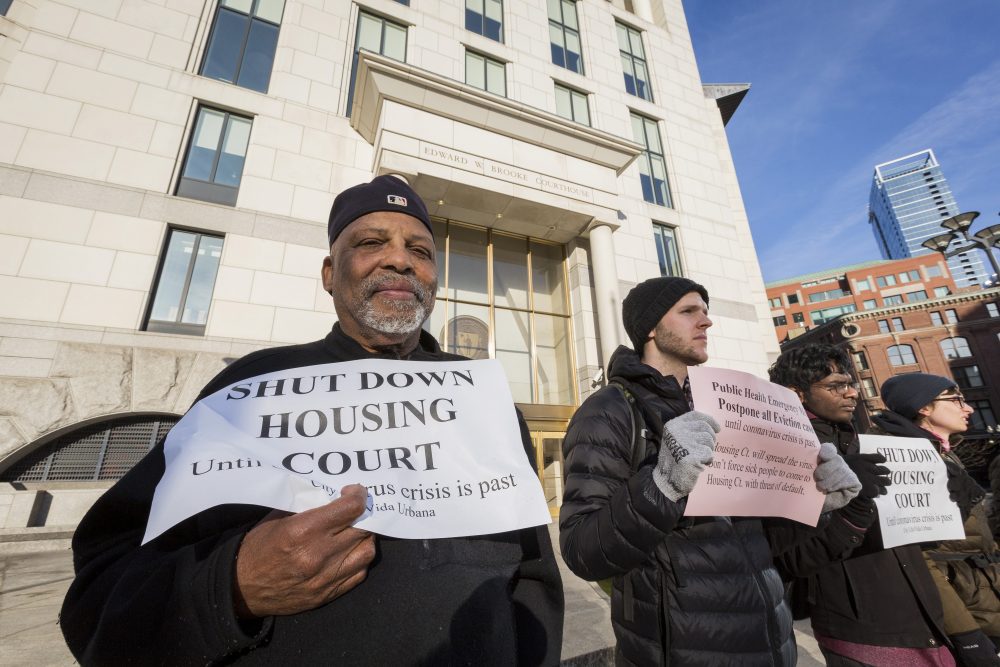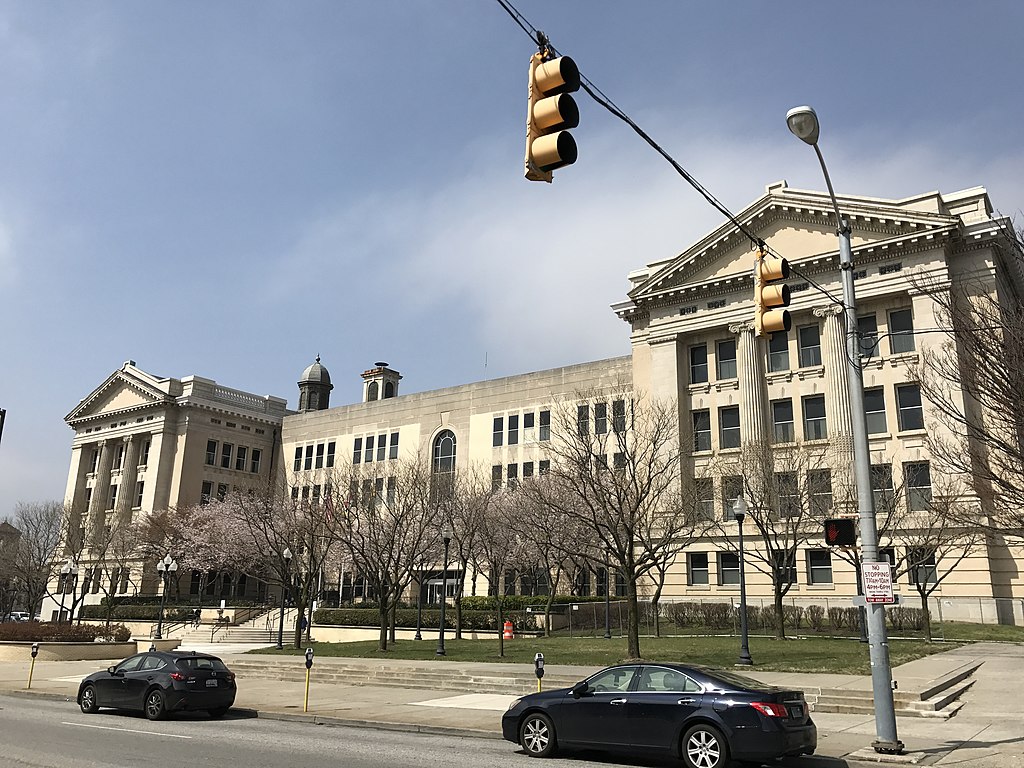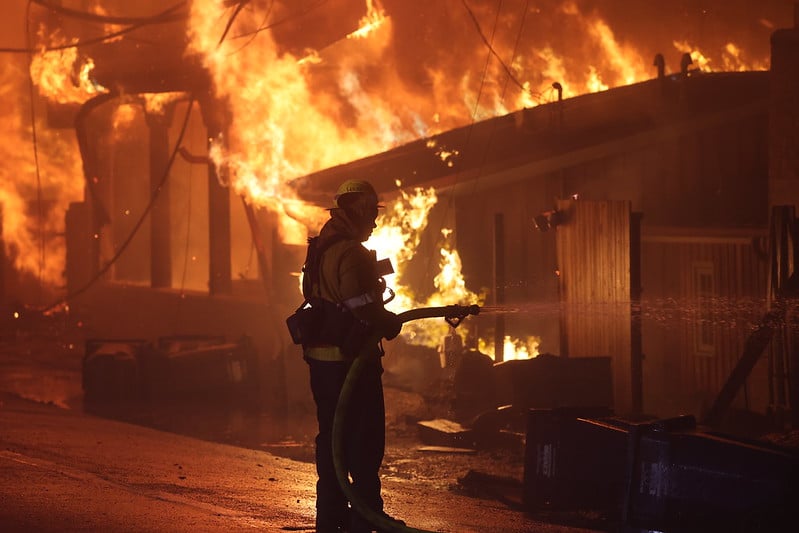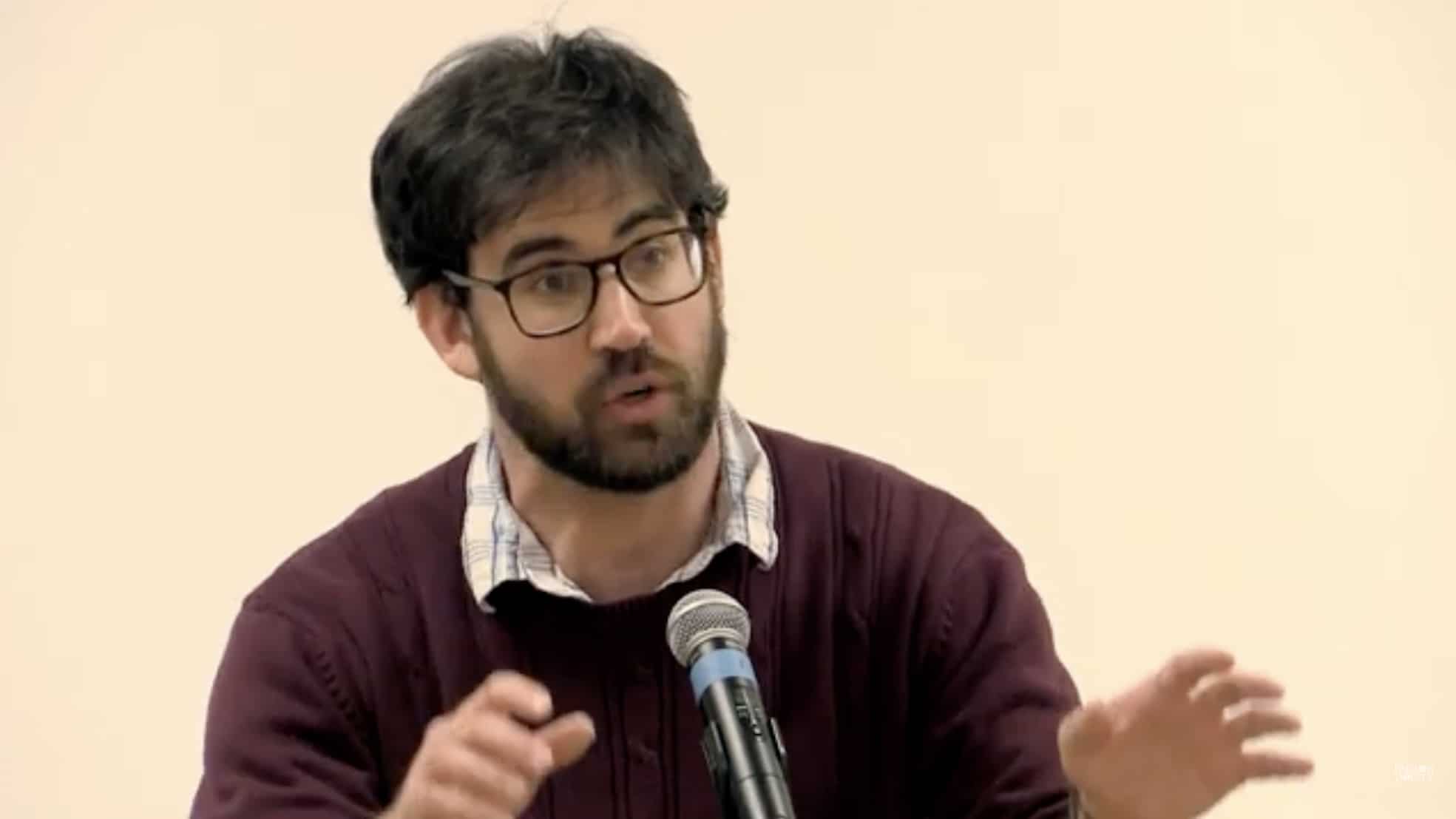In the face of the COVID-19 pandemic and an associated economic catastrophe, cities across the country are now acting quickly to try to minimize the fallout. One idea that’s rapidly spread, and is being acted upon, is a moratorium on evictions.
The details differ across each city, but the basic idea is simple: Nobody should be evicted if they can’t pay rent due to the coronavirus, whether because they are sick and cannot work, or because they’ve lost their job or had hours cut back by their employer.
The best of these measures put a moratorium on all evictions, so that it doesn’t matter if you’re being evicted for non-payment of rent or for some other reason, nor if your situation is actually related to COVID-19 or not. We are in a massive public health crisis, and nobody should be put out onto the street or be forced to find a new apartment right now.
A version of this broader measure was recently put into effect across the whole state of New York, although there appear to be some loopholes that are causing confusion. In Massachusetts large affordable housing providers announced a voluntary moratorium over a week ago, while advocates are still pushing for a legislative solution.
Eviction moratorium vs. rent suspension
But even the best of these eviction moratoriums are not good enough. What tenants really need is a suspension of rent—that is, rent should no longer be owed at all, period.
This is what’s required to keep potentially millions of people in their homes during this historic crisis, and it’s being demanded by grassroots organizations across the country.
Imagine you’re a tenant and you’re already paying $1,500 per month. Then you get laid off, like scores of other workers right now. OK, you’re protected from eviction for the next six months, or as long as this pandemic continues.
But then what? Will you be forced to pay $9,000 in back rent? (For context, 6 in 10 Americans don’t even have $500 in savings.)
Under almost all the proposals being discussed, tenants will still be responsible for all the rent they cannot pay during the crisis—they’ll have massive rent debt. This will ultimately just delay huge numbers of evictions until a few months after the state of emergency is officially declared to be over.
In Los Angeles, for example, it’s looking like the city council will pass a measure that protects tenants from eviction—if it’s for non-payment of rent—for the duration of this crisis, after which point they’ll have “up to 6 months to fulfill payment obligations.”
Other cities’ measures don’t even provide such grace periods. In Seattle, for example, according to the Seattle Times, “when the moratorium ends, tenants will owe whatever debts they’ve incurred and landlords will be allowed to evict them for non-payment.”
demands from the bottom
This is an obvious recipe for disaster. In response, grassroots organizations across the country are demanding a suspension of rent collection.
A petition going around already has over 100,000 signatures.
A coalition of 21 community groups in Chicago have signed onto a letter demanding “an indefinite freeze on collection of all rent, mortgage, and utility payments throughout the duration of the crisis.”
Several local chapters of the LA Tenants Union have signed onto a broad list of demands that includes the following: “An immediate suspension of all rent collection (‘rent holiday’) … to ensure that tenants do not lose their homes in the event of loss of work.”
And the Bay Area Tenant and Neighborhood Councils (TANC) released a statement demanding rent suspension: “During this crisis, rent must be completely forgiven; there should be no expectation to pay it now, or ‘back pay’ it in the future.”
Even Rep. Alexandria Ocasio-Cortez (D-NY) is on board, tweeting: “Eviction, foreclosure, & shut-off suspensions are good but they are nowhere near enough. People don’t want to be in the position where the moment the orders are lifted there will be a marshal at their door. They still feel like rent is due unless a payment moratorium is called.”
Is a rent suspension legal?
That all sounds great, but would it actually be legal for the state to literally suspend rent? Possibly, yes, because governments have sweeping powers in times of emergency.
According to the LA Times, “[law professor John] Sprankling also believed that courts would also allow a blanket ban against evicting people from their homes without compensation to landlords, since judges have long recognized that emergencies allow for exemptions to constitutional protections afforded under the Fifth Amendment,”—that is, the part of the constitution that protects property owners against uncompensated takings.
For example, in the 1922 case Levy Leasing Co., the Supreme Court upheld a New York law mandating that tenants could not be evicted as long as they paid a “reasonable rent,” to be determined by the courts. New York’s law was an emergency measure in response to a severe post-war housing shortage, and the court reasoned that constitutional protections for property owners may be suspended where there is a crisis “so grave that it constituted a serious menace to the health, morality, comfort, and even to the peace of a large part of the people of the state.”
foolishness as an antidote
The current pandemic certainly sounds like the type of crisis described just above by the Supreme Court. But so does the prepandemic status quo, where on any given night over 500,000 people are forced to sleep on the streets of one of the richest countries in the history of the world.
Popular struggles may again point the way forward for housing policy in a post-COVID-19 world.
For example, the Hillside Villa Tenants Association in LA’s Chinatown is fighting for the city to use eminent domain to take over their expiring affordable housing development. They are now explicitly making the argument that the overlapping health and economic crises would not so easily induce an eviction crisis were there more robust public and non-speculative community ownership of land.
“If the city owned our building, rent could be suspended very easily,” they tweeted. “If we ourselves owned our building, nobody would be forced to pay rent this month. But because Tom Botz still owns our building, many of us don’t know what to do come March 31.”
Capitalist land tenure rests at the heart of the American political project. The concept of vast public ownership, or even just the possibility of the state stepping in temporarily to halt rent payments—and perhaps mortgage payments too, which would make many landlords vulnerable to the even more powerful financiers—seems to be the stuff of Marxist fantasy.
The idea popularized by political theorist Mark Fisher that it is “easier to imagine an end to the world than an end to capitalism” certainly still rings true today.
But crises are also times of radical possibility. If today’s social movements have their way, we may come out of this pandemic finding it impossible to return to what we thought to be normal with respect to land and housing. And that might be just what we need.
As the historian and intellectual Vijay Prashad has written: “The common sense of our times will lead us to a bad end. Foolishness is needed as an antidote.”





Imagine if you are a decent,honest,hard working LANDLORD???????????????????????????What then??
Imagine you are a community development lender who financed the landlord’s property?
All good and understandable comments. Now imagine further if you are a decent hard working honest landlord partnered with a local Housing Development non profit with whom you together borrowed from a community development lender and agreed to rent to lower income residents and operate at responsible but low margins….what then?
The policy solutions need more thought than short term political wins. The expenses of housing developments are supported by rents. Utilities, insurance, repairs, security, management presence, support services, taxes, trash handling all rely on rents.
No one wants to evict for lack of rent payment ever. Least of all in a health crisis. And most landlords did not need an eviction moratorium to know that. But the combinations of eviction moratoriums and rents suspension can threaten the very housing provided. Because none of these expenses are optional. There is no deep well of operating revenue beyond rent payments.
So while financial support to the suddenly unemployed renter is certainly warranted, a good portion of that must still pass through to the housing provider – the landlord. And those who are able still to make rent payments should continue to do so (albeit with a lot of common sense coordination in place – late fee waivers, rent increase suspension, etc).
Then they should get assistance from the government. But in reality you’re talking about a TINY percentage of landlords. You don’t think most landlords want to evict? Have you ever dealt with tenants who need eviction defense? You don’t think landlords in LA who own RSO properties won’t want to evict the Latino family who’s been there for 30 years and is only paying $800 rent?
I urge you to take the tenants’ perspective and not that of the “decent honest landlord” — a dying breed, if it ever existed.
Jacob, there are LOTS of landlords like me, with 1-2 units rented that rely on that rent for their livelihood. Why should I subsidize these renters if they can’t pay at least some reasonable rent?! I am retired, have a family to support also and mortgage to pay. Makes zero sense what you say, sorry.
No you are not. And wtf do you know? And who are you to take money out of their pocket? Theft is ok if you say so?
lol, you’re a entitlement special stupid!
So basically, you are advocating for the complete abolishment of private property. Nod yes, bacause thats exactly what you would like to see. Take away the private property from homeowners. Let people live in their homes for free. If you are then unlucky enough to have a renter in your property, you no longer have the right to receive legally agreed upon compensation from the people living there. Who pays property taxes? Who pays upkeep on the house? Who pays the mortgage to the bank? Oh I see, now it’s the owners responsibility to wrangle with the Feds to try and get some money they are owed under a legal contract? The implications of policies such as this will completely change the way we live our lives in the USA. I guess for those who don’t have much, maybe they think it will give them more. But since that more can be so easily taken away from them without regard to basic principles of our Constitution and basic principles of our way of life, it wont matter much to anybody. Your ideas are foolish and dangerous.
AS a small nonprofit providing affordable housing to low-income residents, we of course will not evict anyone who has lost their job or become sick. However, a rent strike would quickly put us out of business and all the residents would lose their homes. We strongly urge those who can afford to pay their rent to do so. We are in this together. We will help those who CAN’T pay their rent and hope those who cn, will.
Woocher – I guess my point is if we implement these spatula proposals instead of more scapula like proposals your dying breed landlords (there are more of us good ones out there than you think) will all be officially dead.
One other interesting aspect of the eviction moratorium…a resident who who steals from their neighbor, vandalizes their common space, is documented running a ‘business’ out of their back door? Can’t be evicted.
My point is simply that at times simple ideas that seem to be good for everyone are actually, eventually, in a complex world, bad for everyone.
In this circumstance picture your non evicted non rent paying resident living next to a criminal in a building that can no longer afford to take out its own trash. You’ve taken the landlord out, you’ve laid off the maintenance people and security. Elevators fall into disrepair, life safety elements go uninspected. A small kitchen fire takes out five units. No insurance. No fix=no CO and the housing resource is abandoned.
With no rent even the good landlords can’t do their job.
What if those unable to pay rent were able to have direct government subsidy directed to the landlord. And those who could pay continued to pay. Could that be okay? Put a temporary stay on rent increases and only evict bad actors, but have that ability in a no-moratorium environment.
I totally agree with the premise of this article and as a landlord I am working with my tenant to keep them housed. Together we have come up with win-win solutions for both of us. Your are correct, there needs to be more done and that is a solution that keeps the tenant and the landlord whole. If I can’t make my mortgage payment I will lose my property and perhaps the next landlord won’t care. The solution needs to help both parties.
1. If tenants don’t pay the rent, landlords don’t pay the bank.
2. If landlords don’t pay the bank, the banks don’t pay their depositors.
3. If banks don’t pay their depositors (e.g. pension funds), pensions don’t pay retirees.
4. If pensions don’t pay retirees, retirees don’t pay the gas, electric, water or grocery bill.
5. If retirees don’t pay their utility or grocery bill, grocers & utilities don’t pay their employees.
6. If grocers and utilities don’t pay their employees, their employees won’t report for work.
7. If employees won’t work, everything shuts down.
8. If everything shuts down, everyone drops dead.
9. If everyone drops dead, there is suddenly a huge increase in the workload of St Peter.
Now who do you think is more likely to be sent up or down once St Peter finds out you’re
the one responsible for giving him a mile high mountain of fresh work ? QED.
Tom, re your 9 points above, looks like tenants hold a lot of power. And don’t they? Do they know this? Are property owners given a chance to receive government help? Suspension of mortgage? Should renters receive similar assistance? Are banks being bailed out? Are employees working? Is there really a God that St. Peter works for? Who is St. Peter? Am i going to hell? Janet
The way I see it: it’s a fact the World is over populated. Its a fact that natural resources are being used up. Its a fact that when an area experiences natural disasters often it makes it an uninhabitable place, so people fight about what they can get, or move to somewhere that provides a better living. Those places with the most organized resources are then flooded with people regardless of whether they can work, find jobs, or afford to live there. That puts a strain on the local resources causing further lack. At that point it’s survival of the fittest with fewer and fewer resources to help those at the bottom. Everyone’s covering their proverbial jewels.
Whether its Socialist or Capitalist or whatever, whenever the resources run out, it’s up to those still holding a stash to decide what direction to send some help out to. Usually it’s towards the direction that in as short of time as possible it will become profitable. Usually also profit made by climbing on the very backs of those that they are helping:and sometimes doing things like smuggling in or prescribing addictive substances that keep those low on the totem pole, low, so they remain just alive enough to feed the engine of commerce.
As in the case of hospitals’ lack of intubation kits during Covid19’s worst days of flooded ER’s, doctors were forced to make decisions on which patient got one, basing it on predicted success of survival, and who knows what other factors (hopefully fair ones) This is the world we live in. Have’s and Have Not’s, with a smattering of in-betweeners that manage to hold their heads above water, and a plethora of folks that can’t, with a few hoarding money and power within their own walls, walls with access by only certain select Luckys, that fit whatever criteria is demanded of them. Some just don’t have The Right Stuff to fit the criteria. It’s called climbing the ladder, and if you can’t or don’t, well, you get left out. That’s where Compassion comes to play. Compassion from advocates that help those that cant help themselves. Unfortunately there are bad actors that take advantage and while are Able Bodied (and minded) are just flat out lazy, they are the ones that mess up the works. Compassionate landlords are few and far between because they have business to run with little margin for error and they are very aware of those bad actors. They have their own families, investments, walls, to uphold, doing what they have to earn a buck like everyone else. Some years are good, some not, they have to save like crazy for the years that are crap, juggle and balance just as everyone else should. But often time people are not wise with their money, and end up broke. On the other spectrum are the swoop and brake large investment corporations that don’t even live in the town they ‘Develop’, begrudgingly offer some small portion of their buildings to ‘affordable’ housing’ so they can avoid some taxes, with no compassion for the town whatsoever. Then even less evolved are the slum lords that tell themselves they are offering affordable housing but really are just as equally as greedy.
In a Kind World we’d have this all figured out. But Survival of the Fittest is here to stay, and the Trickle Down while needed, is more than likely not going to be much with so many jaded potential givers that continuously have to look at the takers that could actually be contributors to society but just don’t want to. Nobody likes to be taken advantage of. And even in the most forgiving and understanding societies there will always be people that just get stepped over, because they don’t want a hand up they just want a hand out.
Why is it up to the landlords to provide what amounts to welfare instead of the government (you notice everyone talks about eviction moratoriums and rent forgiveness, but never about property tax forgiveness to landlords, especially small landlords. I don’t think suspension of property tax payments are the answer either because of what they pay for, but you can’t expect landlords to absorb all the costs with no relief). I am disabled and own a duplex and the money I get from the duplex is the only income I have (I don’t get disability from the government). After putting money aside for taxes and insurance I get $500 a month, IF there were no maintenance or repair expenses for the month and both tenants pay their rent and that’s without having a mortgage on the property (we took equity from our primary house, right before the market crashed in 2006, to buy the duplex as a retirement investment. It is still worth less than we paid for it in 2006). Imagine if someone told you you had to give your car to someone else to use for a year, but you still had to make the car payment, pay for gas, maintenance, repairs, license tabs and you couldn’t do anything if the person decided to totally trash your car — no one would think that was fair, but it’s what landlords are expected to do. If I am supposed to hand over my retirement investment to tenants then why shouldn’t everyone—how about the government take 10% of the value of everyone’s 401K’s, 403B’s, etc. and give the money to renters. The idea is ludicrous and people would revolt, but that’s exactly what small landlords are being made to do. It’s unfair to punish people who have been financially responsible—I don’t got out to eat, only drink water — not expensive coffee or alcohol, etc., don’t travel or have cable TV and don’t have any kids because I can’t afford them, but I’m supposed to support people who have enjoyed all of those things instead of saving money in an emergency fund first.
lol, the dumbest article I’ve read in a long time! Yeah landlords should just take it in the arse huh?